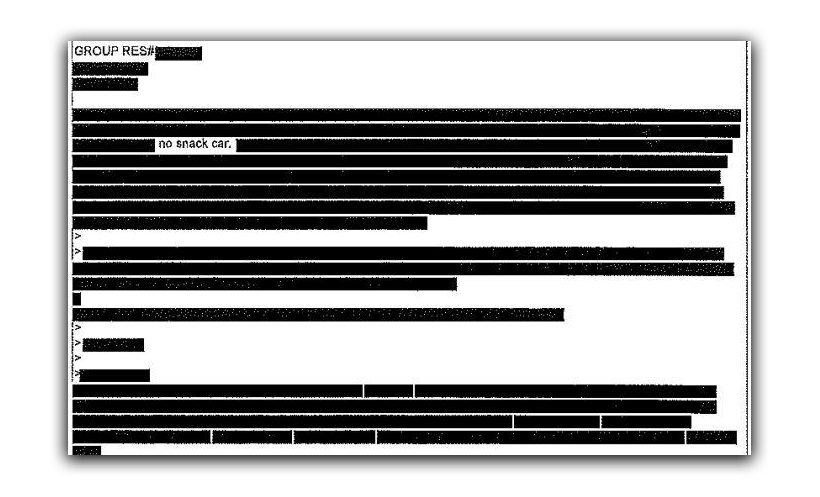
Agencies can redact (black-out) text before relinquishing records. Redactions can be very limited or you may receive documents redacted completely. Agencies are permitted to redact information if it is exempt from disclosure under law.
However, even when records are sent with redactions, the agency should outline the relevant law under which they are justifying the redaction. If they do not provide this information, you can request for the reasons in writing.
California public records exemptions
CPRA Statute 6254 outlines a number of exemptions to public records disclosure. However, the agency can decide to allow greater disclosure of records.
Exemptions include (with caveats and carve-outs):
- Agency litigation until the claim is resolved or settled, however, the complaint, claim, or records filed in court, records that pre-date the suit and settlement records are public
- Appointment calendars and applications, phone records, and other records
- Attorney-Client communications
- Crime victims’ addresses in some instances
- Financial data submitted for licenses, certificates, or permits, or given in confidence to oversight bodies of insurance, securities, or banking firms
- Home Addresses in DMV, voter registration, gun license, public housing, local agency utility and public employee records
- Personnel, medical and similar files if disclosure would reveal intimate, private details
- Police incident reports, rap sheets and arrest records
- Preliminary drafts, notes and memos
- Tax, welfare, and family/adoption/birth records
In addition to exemptions outlined in CPRA statute 6254, CPRA statute 6255 provides a catch-all “Public Interest” exemption which states: “The agency shall justify withholding any record by demonstrating that the record in question is exempt under express provisions of this chapter or that on the facts of the particular case the public interest served by not disclosing the record clearly outweighs the public interest served by disclosure of the record.”
